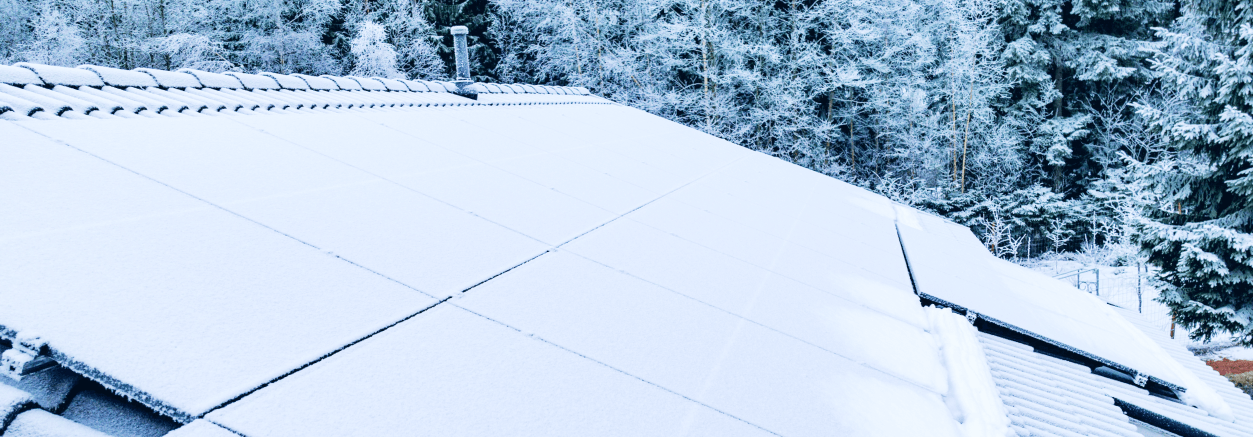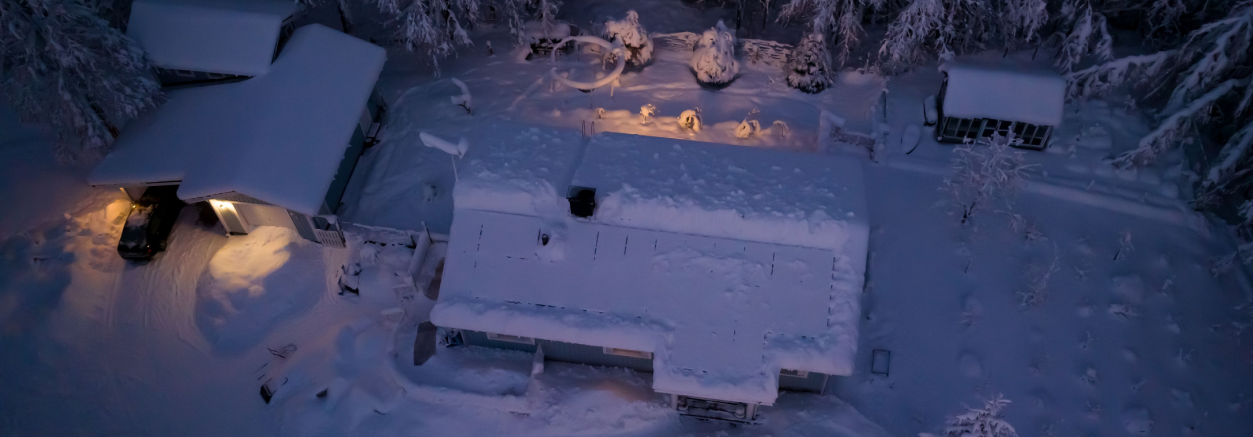

Fierce winter storms could potentially knock out power to millions of American homes this year, sparking questions around whether solar energy is a reliable-enough solution for the season.
- Do solar panels work in winter?
- How do solar panels work when it snows?
- Can solar panels work in a winter power outage?
- What are some good solar panel winter maintenance tips?
- Battery storage vs. generator – which is better during an outage?
As much of the country prepares to get blanketed in snow, sleet, storms and ice, this post will debunk myths, explore the science behind solar panels in winter and discuss how to optimize their performance during the colder months.
Do Solar Panels Work in Winter?


Solar panels do not work in winter

Solar panels in winter are a reliable source of energy
Yes, solar panels do work in winter. In fact, according to the Department of Energy, “solar panels tend to perform best in cold and sunny climates, because heat interferes with the conversion of sunlight into electricity.”*
It’s true that winter days are generally shorter, and sunlight is less intense compared to summer. However, it’s not the heat of a sunny day that activates solar panels — it’s simply the sunshine. Solar panels don’t need direct sunlight to produce electricity — they can still work on cloudy or overcast days.
While the output may be slightly reduced, so long as the sun’s rays are hitting a panel, it will generate electricity no matter how cold it is. And unless your solar panels are blocked by shade, they will continue to absorb energy during any sunny day, even in the winter. While the efficiency of solar panels may be slightly reduced due to shorter daylight hours and occasional cloud cover, they can still generate electricity during the colder months.

Sunnova CEO John Berger*
“Whether it’s wildfires in California, hurricanes in Florida or winter storms in Texas, the level of reliability for our power system, regardless of whether it’s fueled by natural gas, coal, wind or solar — even with some storage — is not enough. You need to put the generation and the reliability at your home.”
How Do Solar Panels Work When It Snows?


Snow prevents solar panels from working.

Solar panels are engineered to handle snow.
One of the major concerns during winter is snow accumulation on solar panels. Snow cover can temporarily reduce power generation, but the situation often resolves itself as snow slides off or melts due to ambient heat or sunlight.
Light snow or ice will not be an issue for rooftop solar operation, as sunlight is still able to pass through to reach the panels. Along with the smooth surface and slanted angle of solar panels, snow often melts and slides off naturally.
The cells of a solar panel are engineered to form a connected network, so if even a small portion of a panel is exposed to the sunlight, the resulting heat can spread throughout to trigger an automatic snow melting process.
Quality residential solar energy systems are built to last 25 years or more and are designed to withstand freezing temperatures. And they can bear the weight of heavy snow or debris.
Can Solar Panels Work in a Winter Power Outage?


Solar panels do not work in a winter power outage.

They can when the system is paired with solar battery storage.
As we’ve seen all too often, heavy ice and snow can bring down power lines, leaving homes and businesses without electricity until crews can restore them. Depending on the location and severity of the weather, this can take days.
If your home solar panels are connected to your utility and you don’t have a battery, your system will not work during a winter power outage. It will automatically turn off, and you won’t be able to create or use solar energy until grid power is restored.
This is why it’s critical to pair battery storage with your home solar system.
When the grid is down due to a winter storm, a battery can power your essential lights and appliances — such as your fridge to avoid food spoilage, Wi-Fi to stay connected and garage door opener to get your car in and out.*
Even if a winter blackout lasts several days, your solar panels will continue to recharge the battery. But it’s important to know you should never drain your battery completely, as it could affect the device's health and may prevent you from continuing to use it during an outage.
Solar System + Battery Storage Usage During A Power Outage
Judging the expected life of the battery is like any backup power solution — it depends on the amount of energy stored, as well as what it’s powering. The larger the power consumption, the less time your backup power supply will last.
To get an idea of how long a battery will last, look at this battery duration calculator.
Battery Storage vs. Generator – Which is Better During an Outage?


A generator is all I need during a winter power outage.

It may not be enough to help.
Generators and solar batteries are both good options for resiliency during a winter power outage. But there are things to consider about generators — specifically, portable generators, when deciding which is best for your home.
All backup power solutions need a fuel or energy source to run — whether it’s a solar panel converting sunlight into usable energy or a generator needing diesel, gasoline or natural gas to run.
While portable generators provide backup power during outages, most rely on fuel, which could be costly. Also, extreme weather situations could make roads inaccessible, while sidelining stores and gas stations for prolonged periods of time. So, if your fuel runs out, so does your luck.
With solar panels and battery storage, however, the power source is the sun — so your system can continue to generate solar energy and recharge your battery with clean, renewable energy as soon as there’s enough sunlight, even if it’s not fully sunny.
For the greatest reliability in times of crisis, it’s recommended to have both a solar battery, and a standby generator powered by natural gas, as it’s never a bad idea to be prepared and diversify your energy solutions.

Yes, Solar Panels Do Work in Winter
Solar panels indeed work in the winter, albeit with some variations in efficiency due to reduced daylight hours and occasional snow cover. Despite these challenges, solar energy remains a viable and eco-friendly solution for powering homes and businesses throughout the year.
By understanding the basic principles of solar panel operation, and pairing your system with battery storage, you can harness the power of the sun during the coldest months of the year — even during a power outage.
So, if you’ve been thinking about installing solar panels, don’t let the winter myth deter you.




